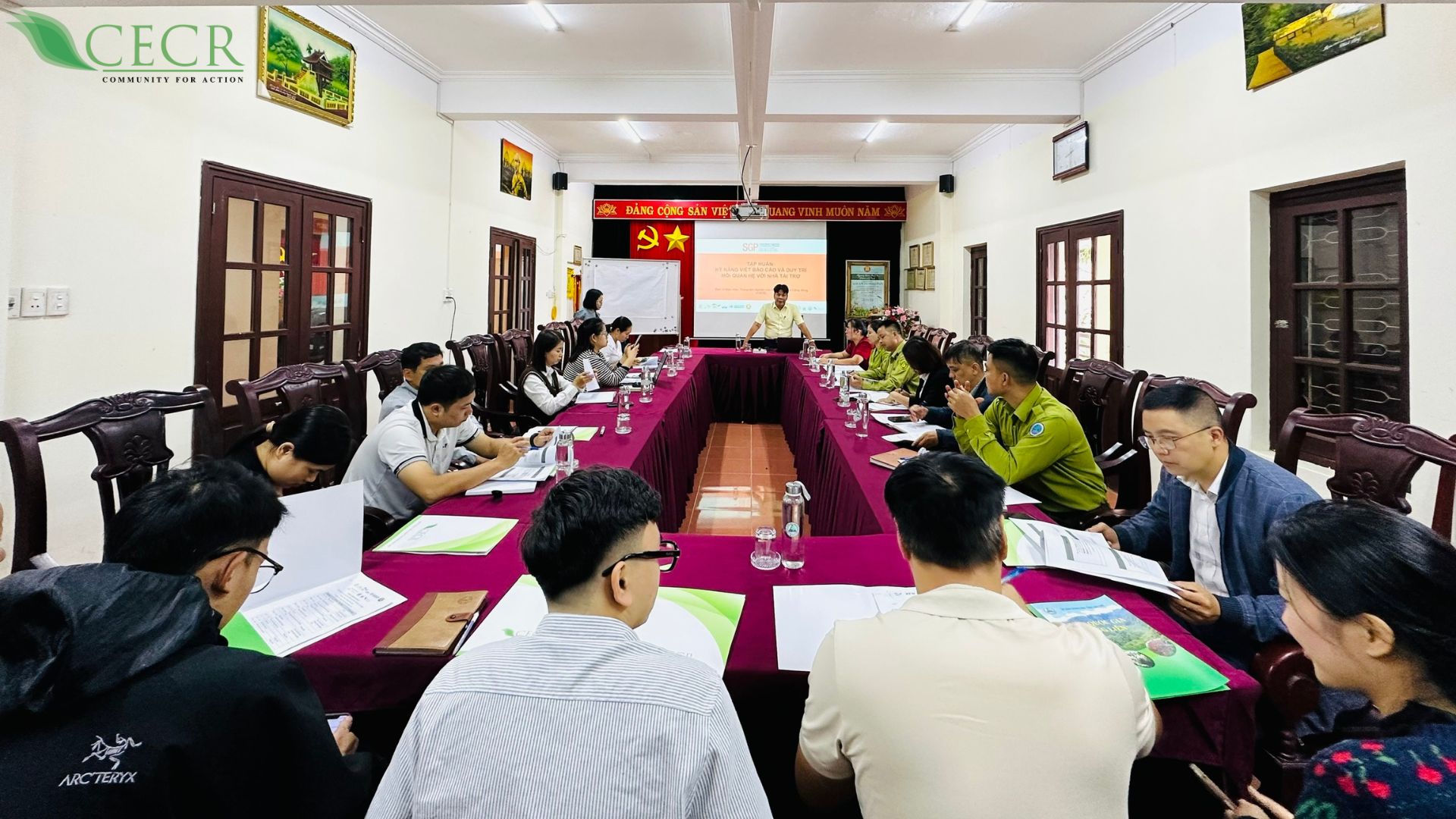On June 15, 2022, Center for Environment and Community Research (CECR) – Vietnam Union of Science and Technology Associations and Legal Department of MONRE has organized the Scientific Workshop on Implementation of the Law on Environmental Protection (LEP) 2020 on Circular Economy of Waste: A Practical View of Challenges and Opportunities to Transform from Monoline and Central Waste Management to Polyline and Market-oriented Waste Management. The workshop aimed to discuss and identify difficulties, barriers and challenges in waste segregation and collection at source; as well as difficulties and challenges in establishing and implementing low-value plastic waste (LVPW) chain (from sorting, collecting, transporting to recycling) in the circular economy of waste resources. The workshop will develop recommendations for the implementation of the Law on Environmental Protection on the Circular Economy of Waste and Decree 08/2022/ND-CP.
We were honored to have the participation, speeches, and presentations from domestic and international leading experts in the field of Environmental Sciences: MSc. Nguyen Thi, Representative of Legal Department, MONRE; Mr. David Lidén, Trade Commissioner of the Swedish Embassy; Dr. Kim In Hwan, Former Vice Minister of Environment of Korea, Advisor to the Ministry of Natural Resources and Environment of Vietnam; MSc. Nguyen Ngoc Ly, Chairman of Management Board, CECR; Mr. Ekkasit Lakkananithiphan, General Director of DOW Vietnam; Mr. Hoang Duc Vuong, Chairman of Vietnam Recycled Plastics Association.
Organized in hybrid mode (online and offline), the workshop has gathered around 100 delegates, including central and local environmental managers, specialists, social activists and scientists who have been researching and practicing in the field of waste management.
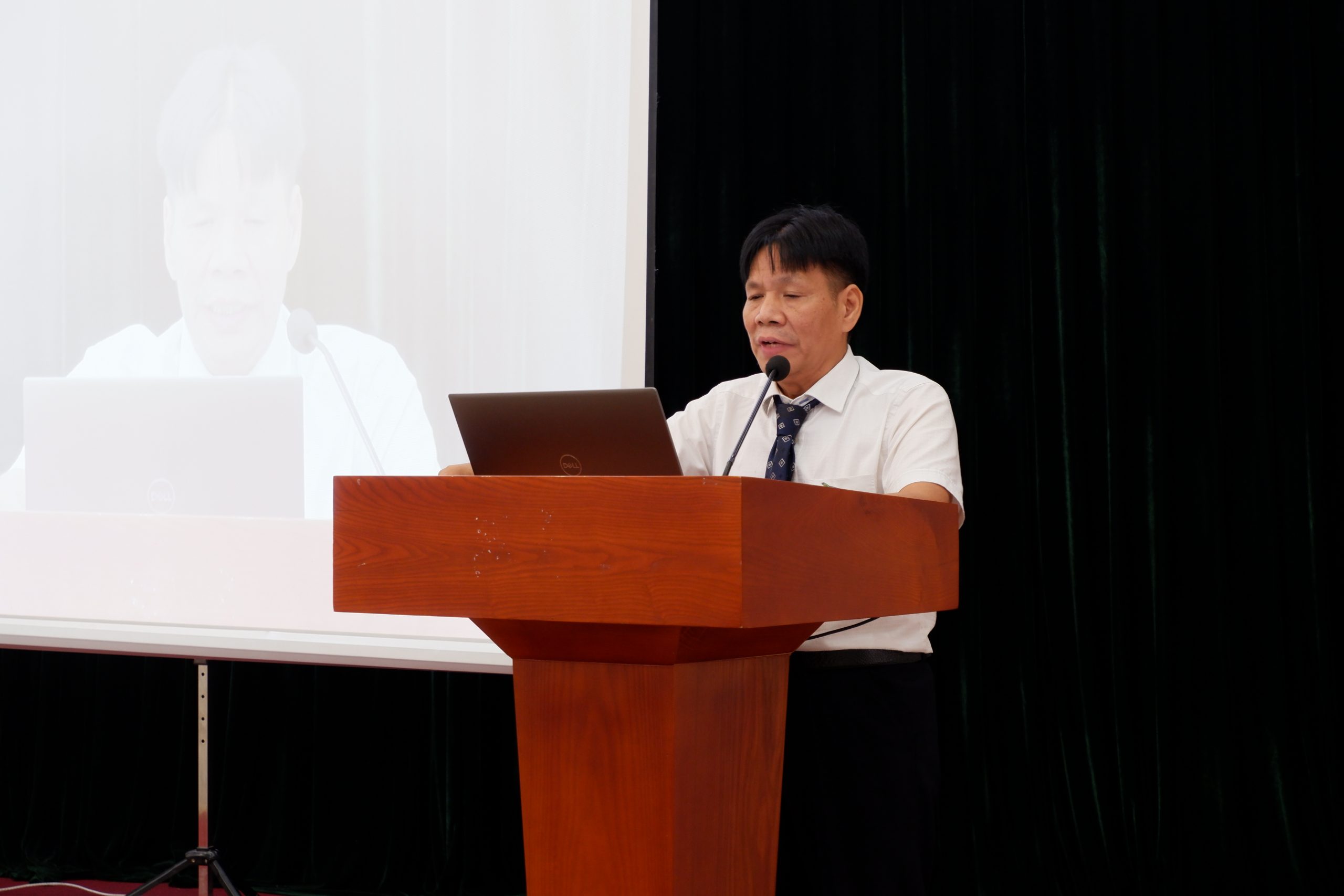
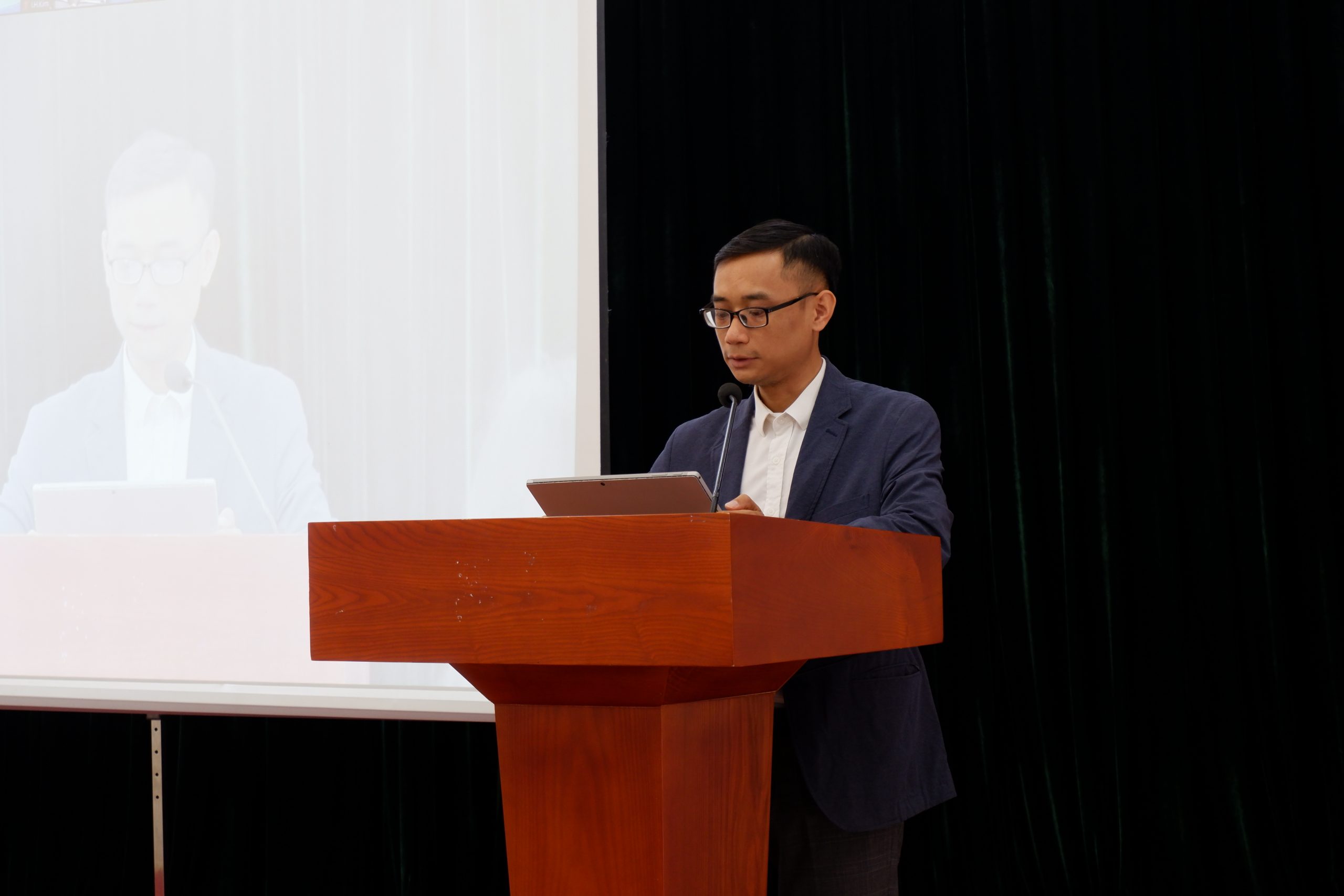 Dr. Nguyen Khac Hung and MSc. Nguyen Thi giving the opening speech at the workshop
Dr. Nguyen Khac Hung and MSc. Nguyen Thi giving the opening speech at the workshop
At the opening of the workshop, the representative of the Legal Department, MONRE shared: “The Law on Environmental Protection has taken effect from January 1, 2022 and is specified in Decree 08/2022/ND-CP of the Government and Circular 02/2022/TT-BTNMT of the Ministry of Natural Resources and Environment. The Law on Environmental Protection 2020 made breakthroughs in environmental protection, as well as the creation of a life in harmony with nature and the application of various financial and economic tools to promote the responsibility of different parties in environmental conservation activities. Among the breakthrough regulations was the regulation on circular economy, a very recent regulation which rivals that of developed countries in designing a harmonious development model between man and nature. This model combines economical and societal developments with environment protection, making sure that goals of sustainable development can be achieved.”
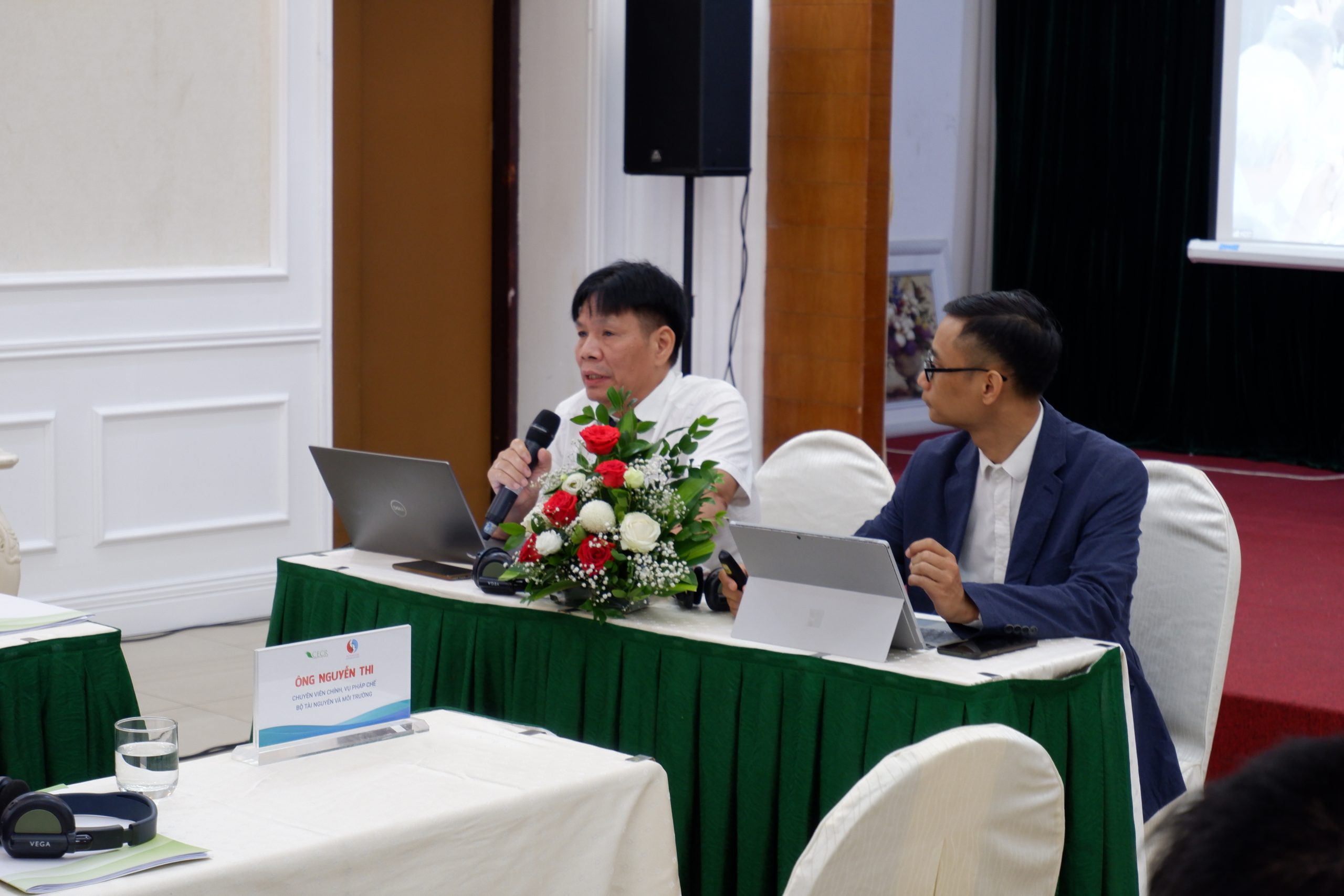
Dr. Nguyen Khac Hung and MSc. Nguyen Thi as Chairs of the workshop
As one of the pioneers in researching and promoting the approach of waste management along the value chain, Dr. Nguyen Khac Hung, the representative of CECR, shared: “The main objective of the workshop is to contribute proposals, along with technical, management, financial, policy, communication, and compliance solutions for the implementation of the Law on Environmental Protection 2020 regarding the implementation of waste segregation, weight/volume-based waste fees and the promotion of the circular economy of waste in Vietnam. The workshop took place in response to World Environment Day 2022 with the theme “Only One Earth”, CECR believes that this event is an important milestone for the cooperation among state agencies, NGOs, businesses and communities towards a polyline waste management system and the establishment of the circular economy of waste. CECR will continue to work with stakeholders to promote the implementation of the Law on Environmental Protection 2020, together with policies on extended producer responsibility to build a circular economy and improve environmental quality and public health sustainably.”
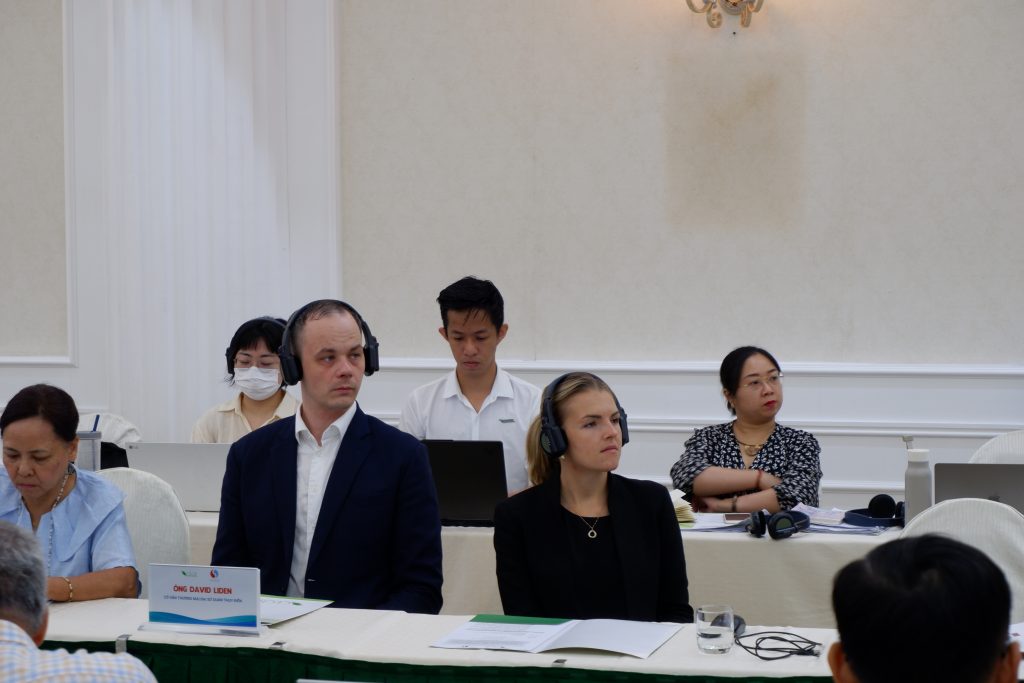
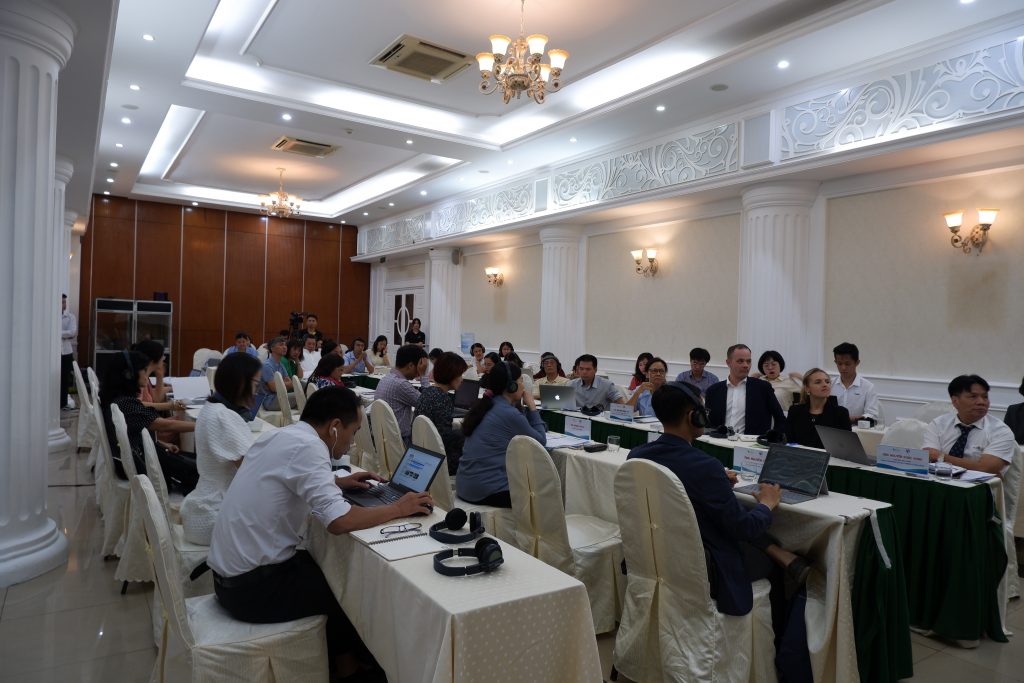
Delegates attending the workshop
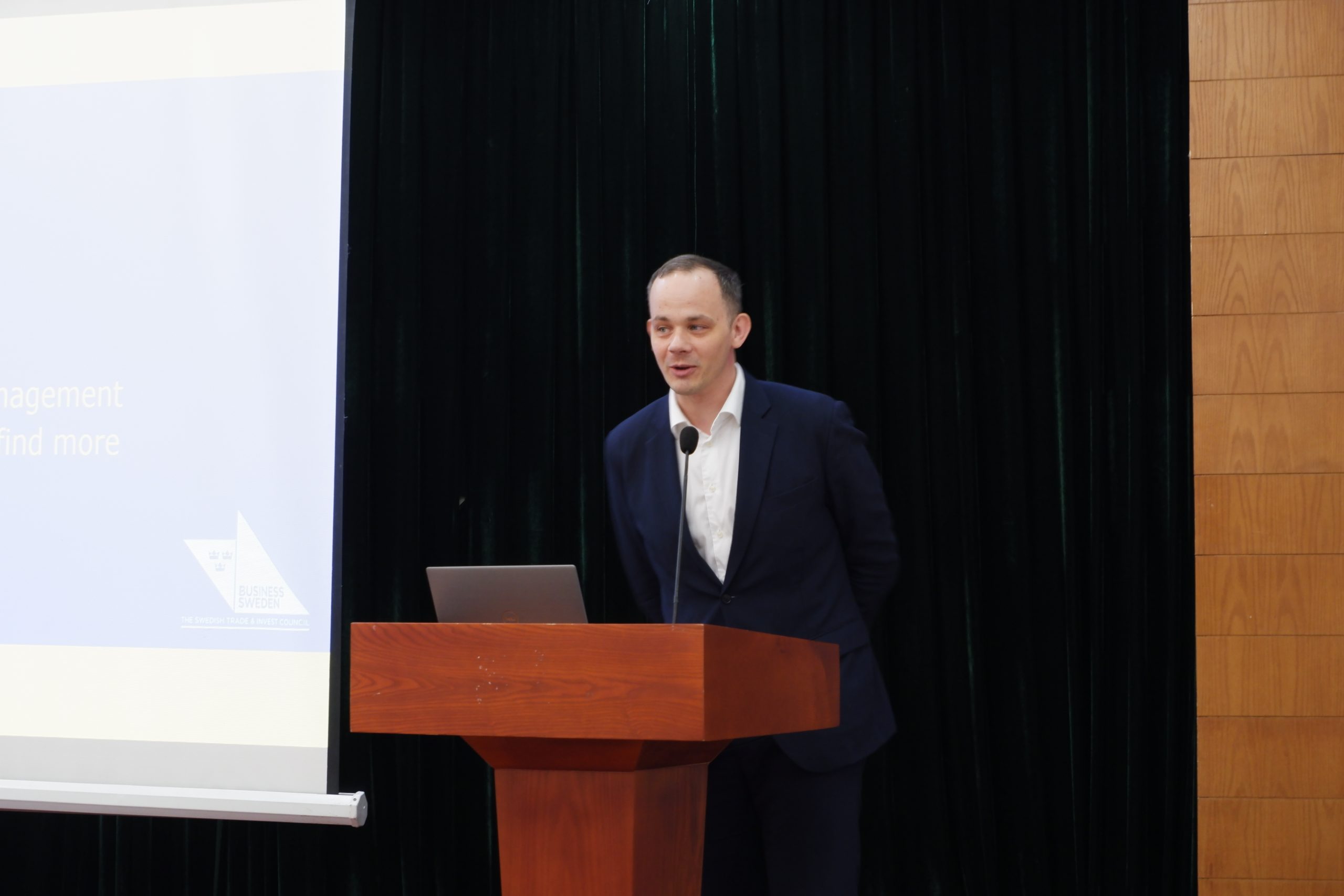
Mr. David Lidén, Trade Commissioner of the Swedish Embassy
Topics for the discussion session and presentation by panels include: (1) From waste classification at source and collection to charging by waste volume: Communication for behavior change and the necessary and sufficient conditions for success; (2) Subsidies for collection and treatment (landfilling), EPR and opportunities to build a waste collection and recycling industry in Vietnam; (3) The role of female informal waste collectors in domestic waste management nowadays: Transition to formal collectors; (4) Digital revolution, a decisive factor in the operation of the circular economy of waste.
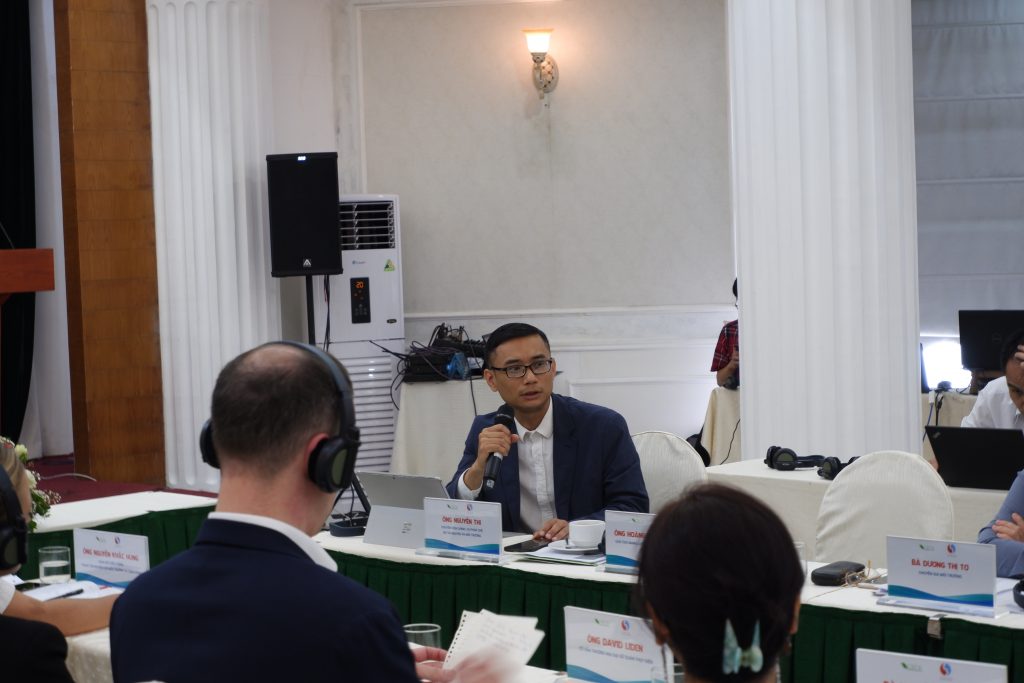
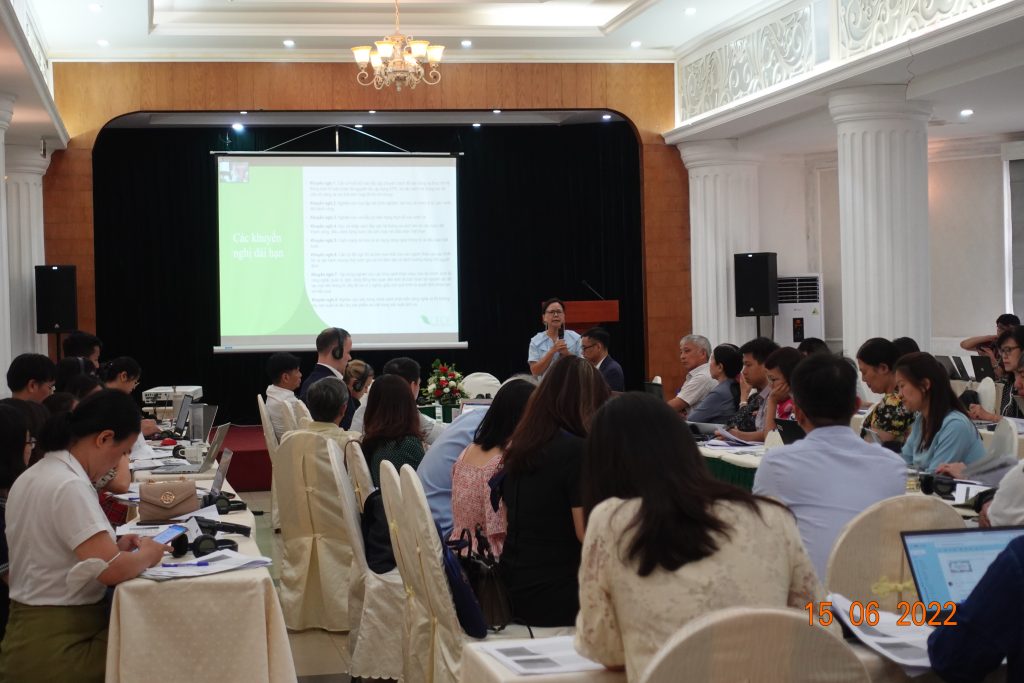
Delegates attending the discussion session in the afternoon
Results from the workshop will contribute to the policy recommendation on establishing, promoting and operating the circular economy of waste, compiled by the Center for Environment and Community Research (CECR), and will be sent to the Ministry of Natural Resources and Environment in July 2022.
Approaching the circular economy of domestic waste requires radical changes from treatment and management of single domestic waste chain (monoline) to treatment and management of multiple waste chains by type of waste (polyline); from centralized management with little to no market connection to multi-line management that connects segregated collection with recycling, creating a market for reusable products; from imperative coordination to multi-stakeholder coordination regarding waste; from seeing waste as thrown-away to treating waste as a useful resource… Approaching the circular economy of domestic waste resources requires major changes in thinking and behavior, as well as in policy and management methodologies. This is a major change in waste management, especially in urban waste management.
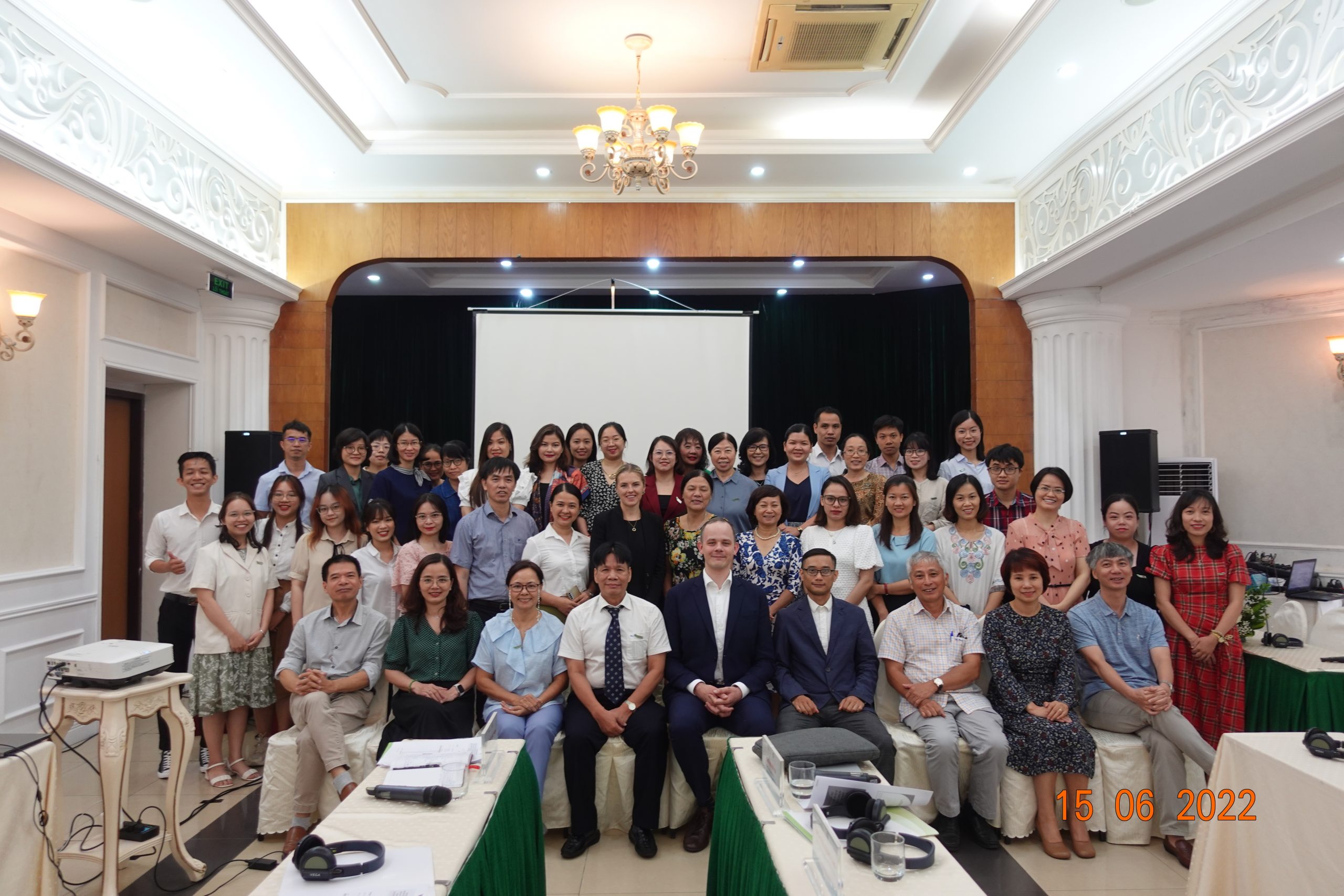
Commemorative photo of delegates after the workshop


 Tiếng Việt
Tiếng Việt